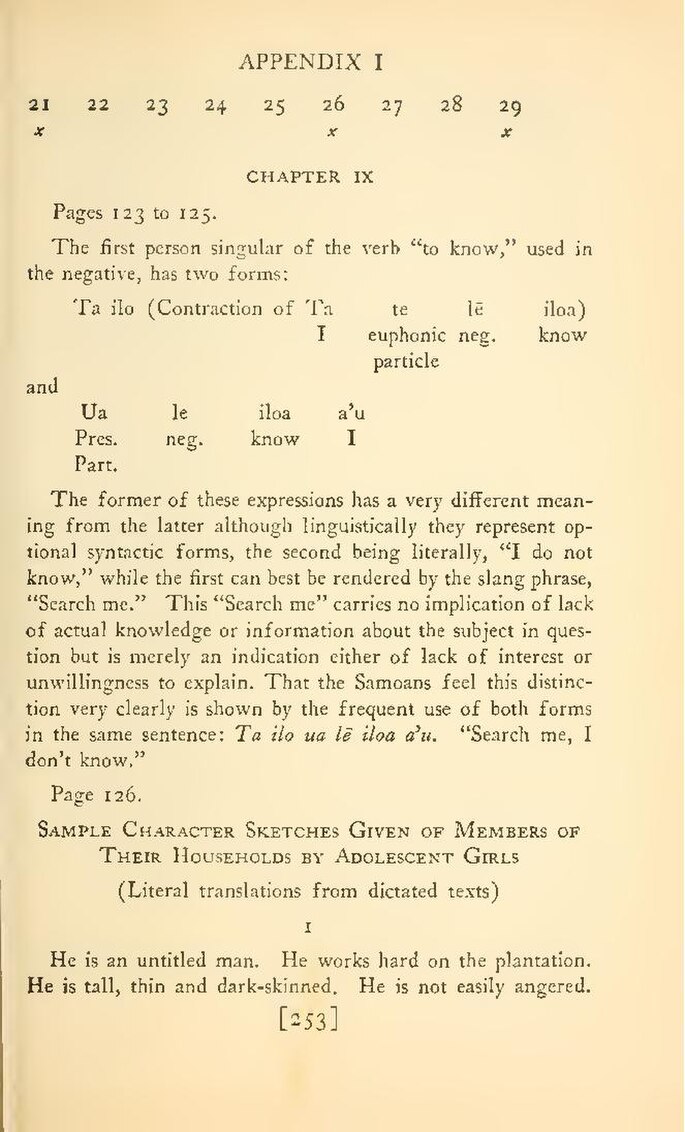APPENDIX I
| 21 | 22 | 23 | 24 | 25 | 26 | 27 | 28 | 29 |
| x | x | x |
CHAPTER IX
Pages 123 to 125.
The first person singular of the verb "to know," used in the negative, has two forms:
| Ta ilo (Contraction of Ta | te | lē | iloa) |
| I | euphonic particle |
neg. | know |
and
| Ua | le | iloa | a'u |
| Pres. Part. |
neg. | know | I |
The former of these expressions has a very different meaning from the latter although linguistically they represent optional syntactic forms, the second being literally, "I do not know," while the first can best be rendered by the slang phrase, "Search me." This "Search me" carries no implication of lack of actual knowledge or information about the subject in question but is merely an indication either of lack of interest or unwillingness to explain. That the Samoans feel this distinction very clearly is shown by the frequent use of both forms. in the same sentence: Ta ilo ua le iloa d'u. "Search me, I don't know,"
Page 126.
Sample Character Sketches Given of Members of Their Households by Adolescent Girls
(Literal translations from dictated texts)
I
He is an untitled man. He works hard on the plantation. He is tall, thin and dark-skinned. He is not easily angered.
[253]
